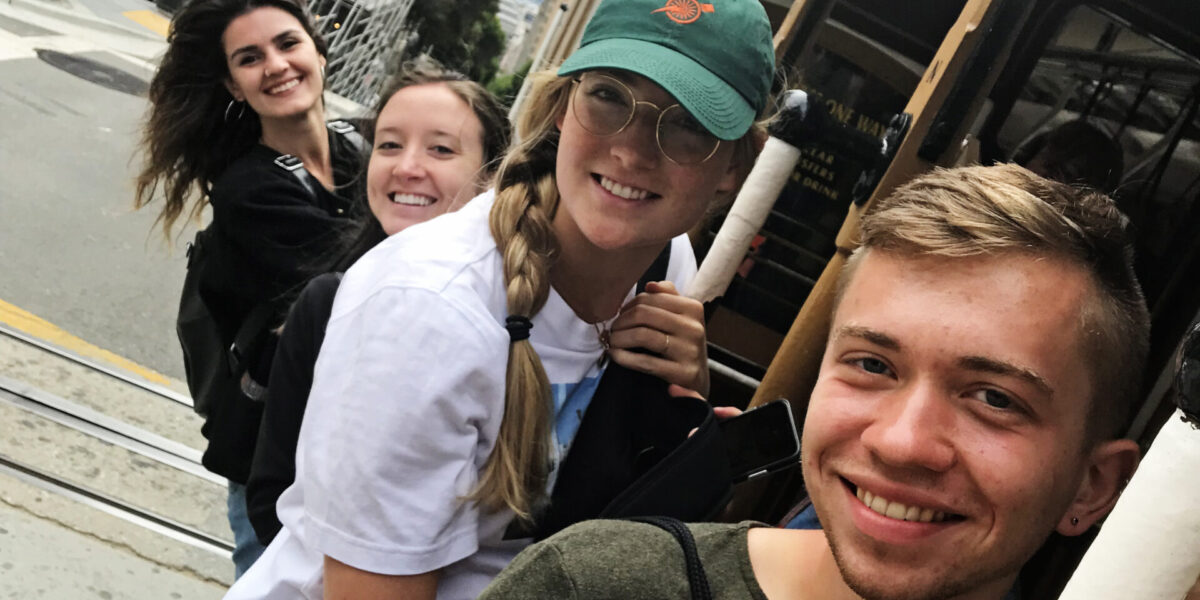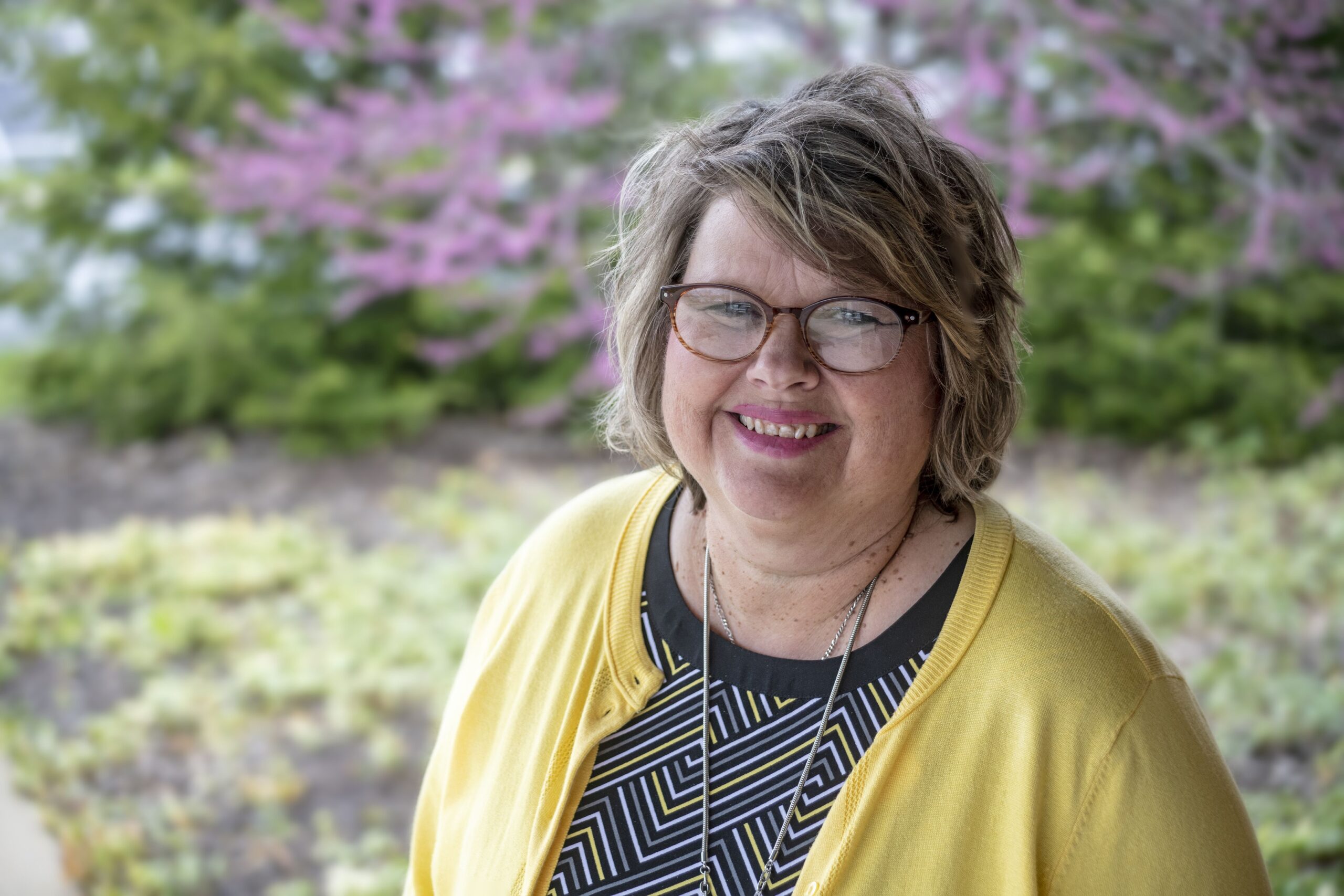NEWTON, Kansas (Mennonite Mission Network) — Following Marisa Smucker’s journey back to her beginnings is an exercise in understanding how one’s first two years of life can help shape the rest.
When Smucker was a 19-month-old living in a Costa Rican orphanage, Dorothy and the late Lynn Smucker adopted her after doing five months of service in the country where she was born in 1971.
As a result of her Anabaptist upbringing that emphasizes serving and caring for others, Smucker, director of Mennonite Voluntary Service (MVS) for Mennonite Mission Network, says the service motif has always been the heartbeat of her life’s calling, no matter what specific jobs she’s had.
"My parents adopted me, because they wanted to give a home to a child who didn’t have one," Smucker said in a recent telephone interview. "I was healing from malnutrition at the children’s hospital, and they took me into their home and hearts along with their two biological sons, Todd and Bruce."
Having grown up Mennonite, Smucker said she had a good grasp of Anabaptist discipleship: "Jesus is the center of our faith; community is the center of our lives; and reconciliation is the center of our work." In 2015, Smucker came to Mission Network already formed in this perspective and seasoned in mission and service. Following her 1994 graduation from Goshen (Indiana) College in social work, she participated in PULSE and AmeriCorps in Pittsburgh.
Following her service terms, she remained in Pittsburgh to engage in several youth ministries. She later moved to Costa Rica, where she did ministry and taught English to youth and adults, before moving back to the States in 2015 to work at Mennonite Mission Network. She began seminary studies in fall 2016.
Mission Network first hired her as a Church Relations representative, a role she has retained along with her newer MVS involvement. In 2019, Smucker became interim director for MVS to help it transition into a reimagined way of being, doing, and partnering.
When she became interim director, Smucker said she began to ask, "What does it mean when we choose service? How can that idea last a lifetime, rather than just for a year or two?"
New model brings new freedoms, responsibilities
Smucker, MVS Assistant Kent Peters, and other Mission Network staff who are serving as Smucker’s advisory committee are helping MVS units to transition into a new framework. MVS’s job is to recruit participants, provide program human resources, and sponsor leadership and participant retreats. The local congregations’ job is to transition into being fully responsible for the unit houses and being the participants’ employers.
This fall, five units are welcoming new or returning MVS participants and associates. Associates are people living in unit houses who are not formal MVS participants but who are involved in other service and community initiatives. The units are:
- Alamosa, Colorado, with three participants.
- Chicago (MVS spaces still open).
- Aibonito, Puerto Rico (MVS spaces still open).
- San Francisco, California (the first unit to be fully transitioned), with three participants and two associates.
- Washington, D.C., with four participants and some possible associates.
By comparison, according to MVS stats, during U.S. military draft eras, and when there were not so many volunteer or career options to choose from, MVS yearly had 100 units and several hundred participants.
Despite the change in scope, the new model has strengths, including how it empowers each unit to more deeply define who they are, said Joanna Lawrence Shenk, associate pastor of First Mennonite Church of San Francisco and leader of the congregation’s MVS unit, during a telephone interview.
"It is allowing more autonomy to each unit," she said. "Different communities and different states have different realities, and we can tailor our unit to those realities."

Members of First Mennonite Church of San Francisco (FMCSF) participate June 3 in a solidarity march for George Floyd in San Francisco with more than 10,000 people. Pictured from left to right: Leah Friesen (MVSer), Jacob Regier (MVSer), Father John Kirkley (rector at St. James Episcopal Church), Bekah Puddington, Sylvanna Ann, Matt Alexander (organizer with Faith in Action Bay Area), Jim Lichti, and Pat Plude (minister of worship and adult faith formation at FMCSF). Photo by Joanna Lawrence Shenk.
Alice Price, longtime leader for the Alamosa unit, says the transition to greater local responsibility has been occurring for more than a decade. MVS staff members are helping to make what could feel like an overwhelming burden into a sense of yoking together as partners.
"They have provided supportive leadership in what were already pre-determined pathways in the inevitable shift we are experiencing today," Price said during a telephone interview.
Kent Peters said that while there are more noticeable changes occurring during today’s transition, the program has always changed in smaller ways due to trends or to specific assignments sought by participants.
"Each MVS director has also brought their own emphasis on what aspects of the program they want to focus on," he wrote in a recent e-mail. "This seems like a good time in the life of the program to reassess what are the most important values of MVS."
This time of transition is not fixing something that was broken, or righting any wrongs, Smucker said. Rather, it is about being open to new creative opportunities for host congregations/organizations to have service units, "in whatever style that may be," and to invite new initiatives to spring up.
"The moment we say, ‘Here am I, send me!’ [Isaiah 6:8], we open up ourselves to be used by God and ready to serve others in a way that is selfless," Smucker said.








